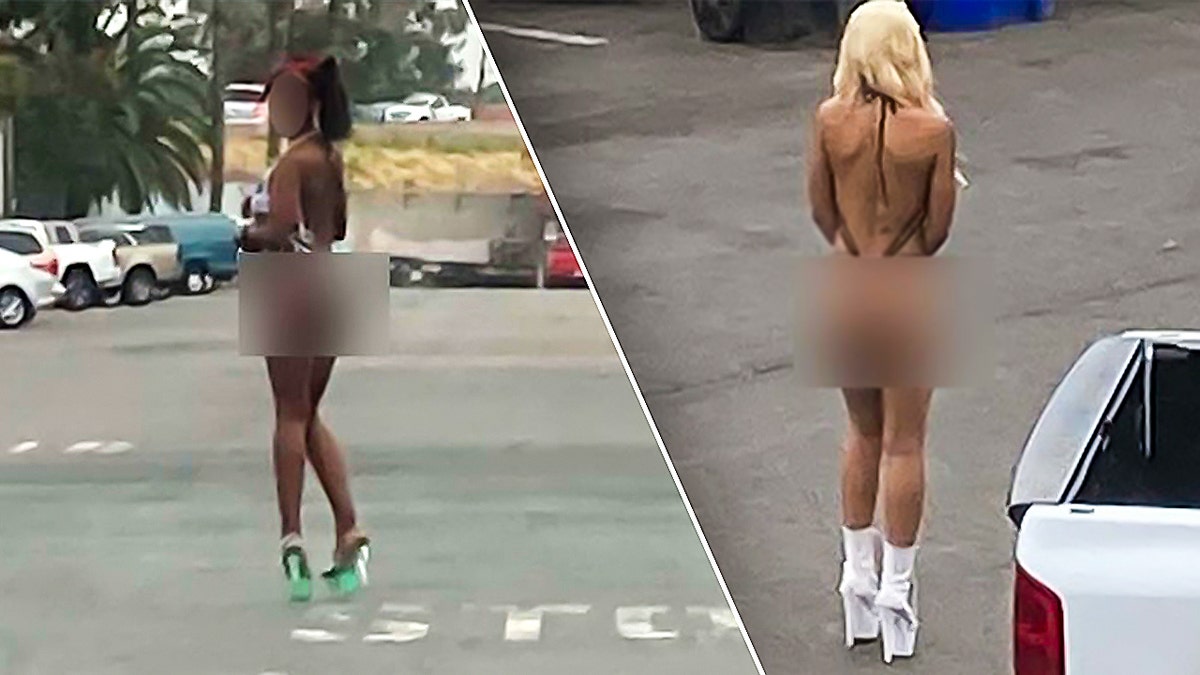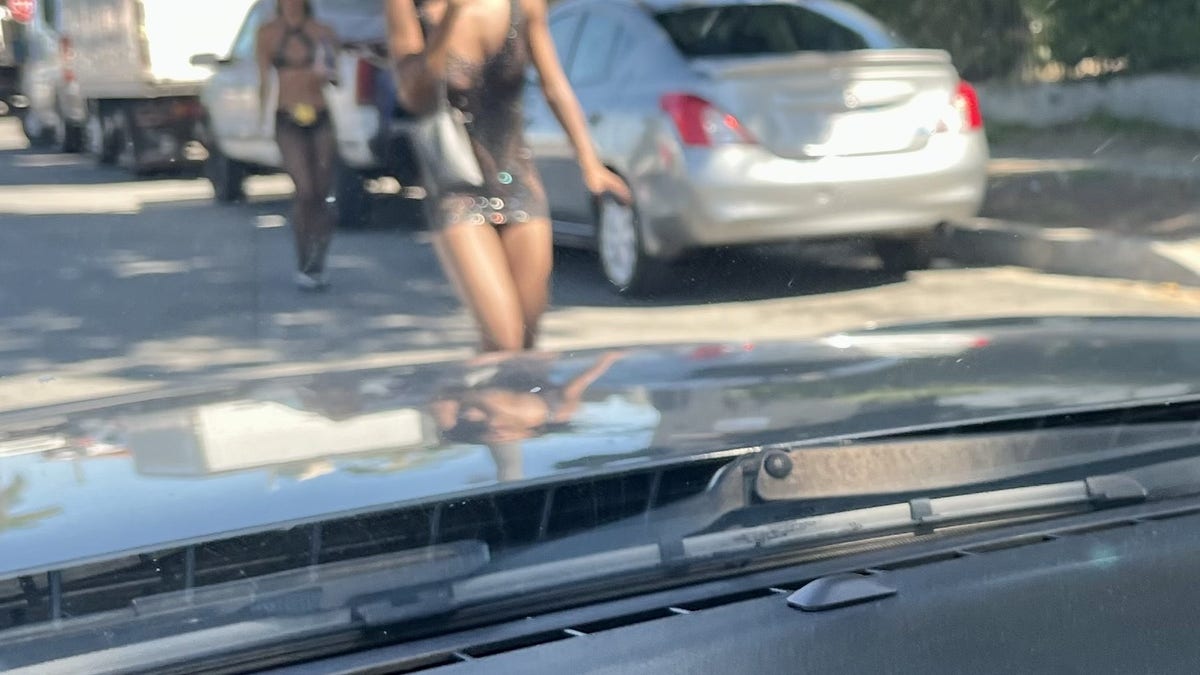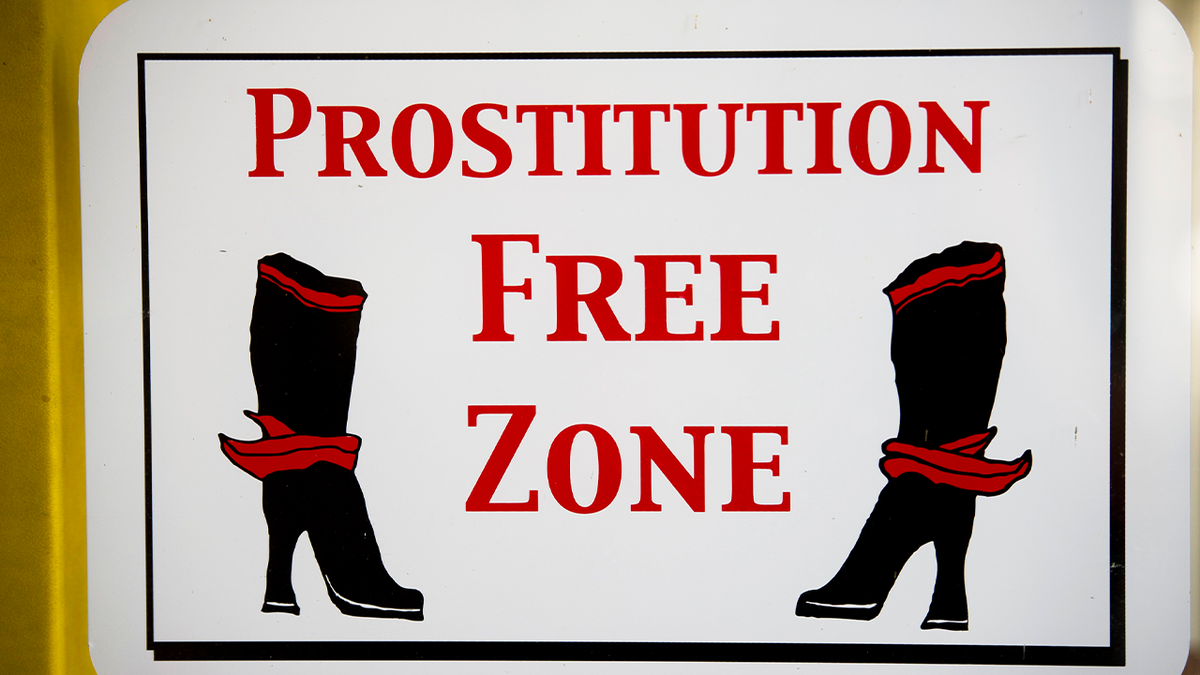California progressives want to block a new bill that would recriminalize street loitering for the purpose of prostitution.
SB 1219, authored by state Republican Sen. Kelly Seyarto, would reinstitute a provision previously taken out of California’s penal code that prohibited loitering in a public place.
San Francisco Democrat Scott Wiener previously authored that bill, known as SB 357, or the Safer Streets for All Act. Gov. Gavin Newsom signed it into law in 2022, but critics say the law has promoted brazen prostitution and sex trafficking on city streets, such as in Oakland, San Francisco, Los Angeles and San Diego.
Following the public safety hearing on Tuesday for SB 1219, Seyarto told Fox News Digital he introduced the bill “in an attempt to offer resources to victims of human trafficking.”

Prostitutes prowl San Diego streets as families, businesses forced to scramble.
“They need our help to get out of their dangerous situation, and we should use every tool at our disposal to protect them,” Seyarto said. “Prostitution is illegal in California. Neglecting victims for the sake of not inconveniencing criminals is bad public policy. I am disappointed that the bill did not even get a motion for a vote in committee.”
Meanwhile, Wiener said the purpose of SB 357 was to prevent police officers from profiling loiterers based on their looks.
“This is literally one of the more pernicious kinds of criminal laws that if you’re simply standing around dressed in a certain way, your hair is in a certain way, your make-up is in a certain way — if an officer subjectively thinks that someone is engaging in sex work, they can arrest you, and I find that kind of crime to be offensive.,” he said.
SB 1219 would not only create penalties for loiterers, but also would punish motorists who attempt to solicit prostitutes for the purpose of sex.
Los Angeles police sources who previously spoke to Fox News Digital said the current law is “definitely” handcuffing them from cracking down on prostitution. The police said that because of the reform they can only make arrests if a suspect admits to prostitution, which they said is a rarity.
L.A.’s Figueroa Street, also known as “The Blade,” for example, has become inundated with prostitutes and pimps, according to the police. Pictures that have circulated widely on social media show young women wearing thongs and fishnets, often with their breasts exposed while standing and even twerking in broad daylight on street corners.
During Tuesday’s hearing, several proponents of recriminalizing loitering argued that without reinstating the penalties, women will remain especially vulnerable to sex trafficking.

Alleged prostitutes in National City, California, will stand in the streets to help attract a john, according to the city’s mayor. (Ron Morrison )
“SB 357 has had many unintended consequences,” said Opal Singleton, president of anti-trafficking group Million Kids. “One of those is a massive increase in the amount of human trafficking activity taking place in California. This is a serious public safety issue, and we need to address it.”
Singleton said many city leaders and mayors have shared how pimps, gangs and cartels are bringing “van loads of girls in from across the USA to conduct commercial sexual services in our communities.”
Several representatives from law enforcement agencies, including the California DA’s Association, Riverside County Sheriff’s Department, San Bernardino County Sheriff’s Department and the San Francisco Police Officer’s Association, support SB 1219.

A “Prostitution Free Zone” sign is displayed in a window in California. (David Paul Morris/Bloomberg via Getty Images)
Meanwhile, several social justice groups are opposing the bill, including the American Civil Liberties Union. A spokesperson for the organization, Becca Cramer-Mowder, said Tuesday that SB 357 isn’t the reason street prostitution has increased across the state. Instead, she said high costs of housing and the reversal of COVID-19 aid have driven people to prostitution.
“Sex workers are often parents working to support their children and rates of survival sex work would be greatly reduced by addressing the housing crisis and building a stronger social safety net,” Cramer-Mowder said. “Arresting sex workers for loitering does not help anyone, it only helps hide people from view and makes all sex workers, including those who are trafficked, more vulnerable to violence and abuse.”
CLICK HERE TO GET THE FOX NEWS APP
Fatima Malika Shabazz, a transgender LGBTQ+ activist of Decrim Sex Work California, said SB 1219 would “kill people” and “put them at risk.”
California Public Defenders Association and the San Francisco Public Defender’s office also oppose the bill.
However, two other bills in California’s lower legislative chamber have also been introduced to repeal SB 357, citing reports of law enforcement agencies who have reported an uptick in illegal activity surrounding prostitution rings. At the time of its passage, Newsom said his administration “must be cautious about its implementation.”
“My administration will monitor crime and prosecution trends for any possible unintended consequences and will act to mitigate any such impacts,” he said at the time.
Fox News’ Emma Colton contributed to this report.
